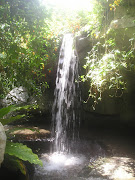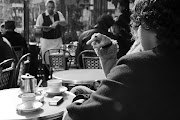Hi folks,
In the reading due yesterday, we read that after Beowulf defeats Grendel and the Danes and the Geats begin to celebrate, a poet in Hrothgar's court starts to put Beowulf's heroics to verse. He begins by reciting the exploits of another hero, Sigimund, and his battle with a dragon ("wyrm" in Old English). This is an example of oral storytelling and could perhaps be the story-within-a-story hinting to how the epic of Beowulf got its start. In the times of Old English, a poet, called a "scop", would tell long, elaborate tales, entirely from memory and often with the aid of a harp. Imagine sitting around a fire, drinking mead with your friends, as local scop tells the harrowing tale of Grendel. Remember, this was a time when there was no other media by which to lose yourself, so storytelling was a very intimate and communal form of entertainment as well as education. You can imagine how popular the tale was that after a time someone skilled in writing putting down in letters and captured it forever. Had Beowulf not been written down, we might not have been able to enjoy this story.
Here's Benjamin Bagby performing the epic of Beowulf the way it would have been over a thousand years ago:
Tuesday, April 20, 2010
Wednesday, April 14, 2010
Maps for Beowulf and Old English audio
Audio Files of Beowulf read in the original Old English
Map showing the migration of the Germanic tribes--Angles, Saxons, Jutes, and Frisians to England. Their arrival sparked the development of Old English from which Modern English, which we speak today, developed. The story of Beowulf involves two other Germanic tribes--the Danes and the Geats. The tale was likely transmitted orally until it reached England where it was eventually written down in Old English.
Map of the Tribes in Beowulf. This is modern day Denmark and Sweden.
Map showing the migration of the Germanic tribes--Angles, Saxons, Jutes, and Frisians to England. Their arrival sparked the development of Old English from which Modern English, which we speak today, developed. The story of Beowulf involves two other Germanic tribes--the Danes and the Geats. The tale was likely transmitted orally until it reached England where it was eventually written down in Old English.
Map of the Tribes in Beowulf. This is modern day Denmark and Sweden.
Monday, April 12, 2010
Melvyn Bragg's The Adventure of English
A History Channel special based on Bragg's popular book. The second video has a great segment with Seamus Heaney, the author of your translation of Beowulf. We'll check out a lot of wonderful multimedia files in our discussion of the development of the English language through Beowulf, Chaucer, and Shakespeare.
1/5
2/5
3/5
4/5
5/5
1/5
2/5
3/5
4/5
5/5
Subscribe to:
Posts (Atom)





